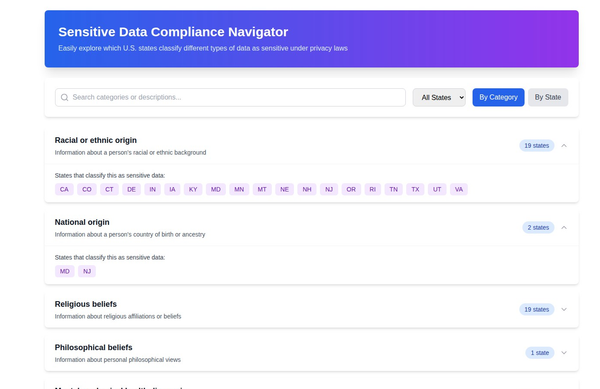Unmasking Data Privacy: California Appeals Court Greenlights CPRA Regulations

Landmark legislation set to transform the landscape of consumer data protection
Introduction:
A game-changing verdict from the California State Appeals Court has reignited the conversation about data privacy rights. In a move celebrated by advocates, the court’s approval to enforce regulations prescribed by the California Privacy Rights Act (CPRA) marks a significant leap forward. This crucial ruling reinforces California's stance as a torchbearer of consumer protection in the digital space.
Key Points:
1. Decoding the CPRA
2. A Ground-breaking Verdict: Court Triumphs Over Opposition
3. Reinforcing Data Privacy: Dissecting CPRA Regulations
4. Ripple Effects: Impact on Businesses and Consumers
5. The Road Ahead: Forecasting California's Privacy Landscape?
1. Decoding the CPRA
The California Privacy Rights Act, a constituent-driven proposition, got the thumbs-up from state voters in November 2020. An extension to The California Consumer Privacy Act (CCPA), the CPRA was designed to reinforce and augment the privacy rights of Californians. Key additions include broader data access and control rights for consumers, fortification of security safeguards and the inception of the California Privacy Protection Agency (CPPA) to ensure compliance.
2. A Ground-breaking Verdict: Court Triumphs Over Opposition
The decision of the California State Appeals Court to implement the CPRA regulations stands as a monumental win for champions of data privacy. Initial resistance questioned the legality and potential enforceability of the CPRA, thereby stalling its implementation pending judicial review. However, undeterred, the court overruled these objections, placing the CPRA back on the priority list.
3. Reinforcing Data Privacy: Dissecting CPRA Regulations
The CPRA brings about a series of substantial modifications to the current privacy norms in California. These include an expanded scope of personal information, incorporation of sensitive individual data (examples being race, ethnic background, and health data), data minimization stipulations, and more rigid requirements for obtaining consent for data collection and use. The central theme is to ensure individuals have full ownership over their personal data and promote transparency in business operations.
4. Ripple Effects: Impact on Businesses and Consumers
CPRA regulations' roll-out will set off a series of changes for businesses and consumers alike. Companies will have to fast-track alignment of their data gathering and processing practices with the incoming rules. This will necessitate substantial investments in data protection measures, cultivation of privacy-focused practices, and the arrangement of clear processes to tackle consumer queries. From the consumer perspective, they can anticipate stronger control over their personal data, increased insights into business practices, and more proficient mechanisms to handle privacy concerns.
5. The Road Ahead: Forecasting California's Privacy Landscape?
The successful progression of the CPRA cements California's spot as the standard-bearer for data privacy laws. As other states and territories consider similar strategies, California's influence might reach well beyond its geographical boundary. The CPRA’s implementation could act as a trigger for national dialogue on data privacy, inspiring other regions to adopt similar legislations to protect their citizens' rights. Given technology’s relentless advancement, it is vital for both governing bodies and organizations to prioritize personal data protection and modify their strategies to match.
Conclusion:
The bold decision by California State Appeals Court to sanction the enforcement of the California Privacy Rights Act (CPRA) regulations is a massive stride forward in the data privacy arena. By extending and amplifying existing consumer privacy rights, CPRA ensures Californians benefit from stronger control and protection over their personal data. This ruling stands as a validation of California's commitment to prioritizing data privacy and could potentially pave the way for similar legislations nationwide. As businesses and consumers brace for the incoming changes, staying informed and proactive in navigating the evolving privacy landscape is essential.





